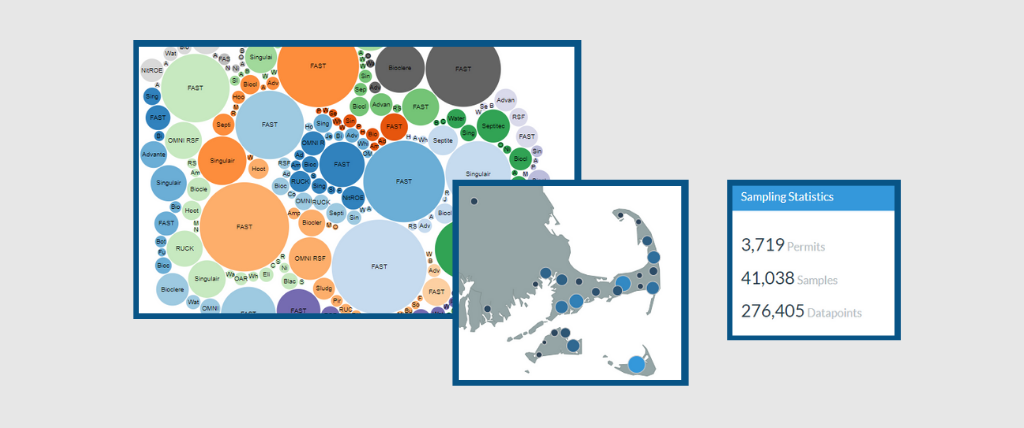
Alternative Septic System Tracking

About the Program
As towns have struggled with the necessity to stem the flow of human-produced nutrients such as nitrogen into our shared groundwater, ponds, bays, and estuaries, Innovative/Alternative (I/A) Septic Systems have been installed across Barnstable County as a means to reduce nitrogen output on a case-by-case basis. I/A systems are much more complex than standard onsite wastewater treatment systems, and as such require that the mechanical components be maintained on a regular schedule. Additionally, as I/A systems are intended to reduce nitrogen output, the effluent must be monitored to ensure that the system is removing nitrogen to an established standard. Individual towns are tasked with ensuring that this upkeep is being completed as required for each and every I/A system.
This program provides innovative/alternative septic system compliance monitoring services to fourteen towns in Barnstable County via an internet-accessible database. The database allows system operators (state-licensed wastewater treatment operators who are contracted by homeowners for system maintenance) to submit maintenance and sampling reports via an internet-based interface. In addition to streamlining the reporting process, the need for system operators to send paper reports via mail was effectively eliminated.
I/A System Performance Analysis
In addition to tracking operation and maintenance compliance, the database is also used to track system performance. Since the inception of the program, over 16,200 water quality reports have been submitted, resulting in over 116,000 individual water quality data points. These water quality data points range from parameters such as effluent total nitrogen to influent BOD (Biochemical Oxygen Demand) and water meter readings. Water quality data is monitored in real-time by the database to quickly identify and flag poorly performing systems. Follow-up on systems flagged for poor performance is completed by the department’s database administrator.
Disseminating Performance Data
In an effort to better educate town Boards of Health on the real-life nitrogen-reduction performance of currently-installed I/A systems, the Department prepared a series of presentations which have been given at various town Board of Health meetings. Each presentation was custom-tailored to each town’s data and each were formulated to allow Board of Health members to come to their own conclusions about what types of I/A technologies they might consider approving for use in the future, as well as providing them with a baseline to compare the performance of currently installed I/A systems.
Reports on the creation and use of the database and on system performance have been presented at national conferences. The web-based reporting system and customized features of the database have become a national model that has been adopted by several states and jurisdictions.



